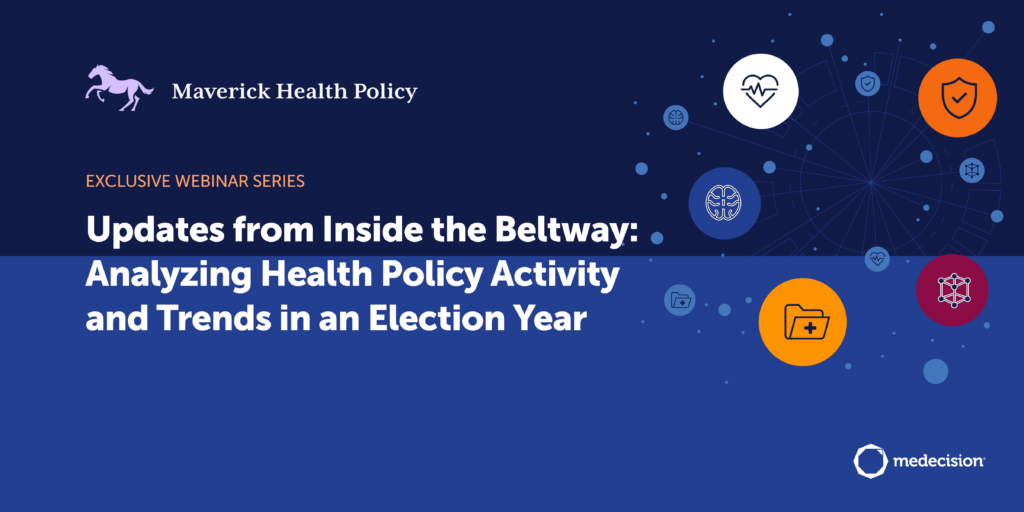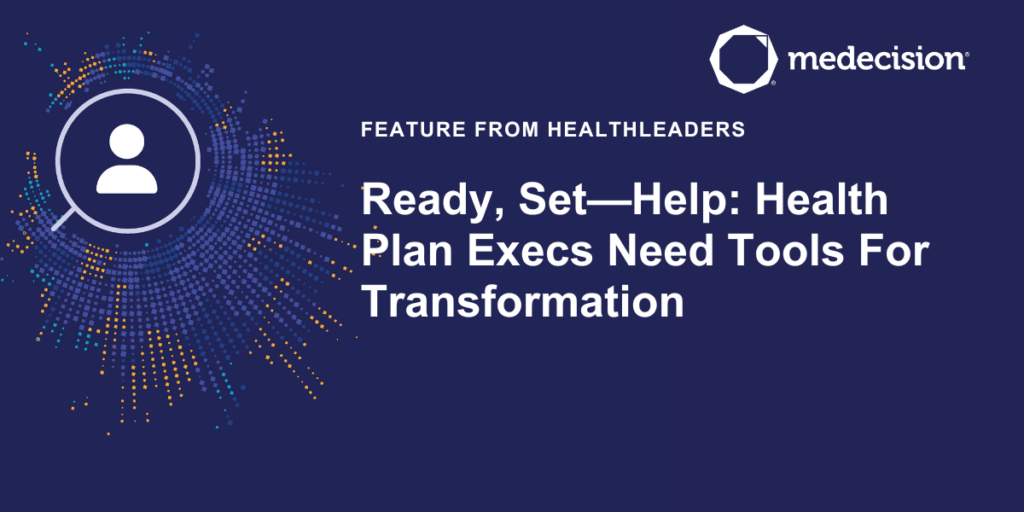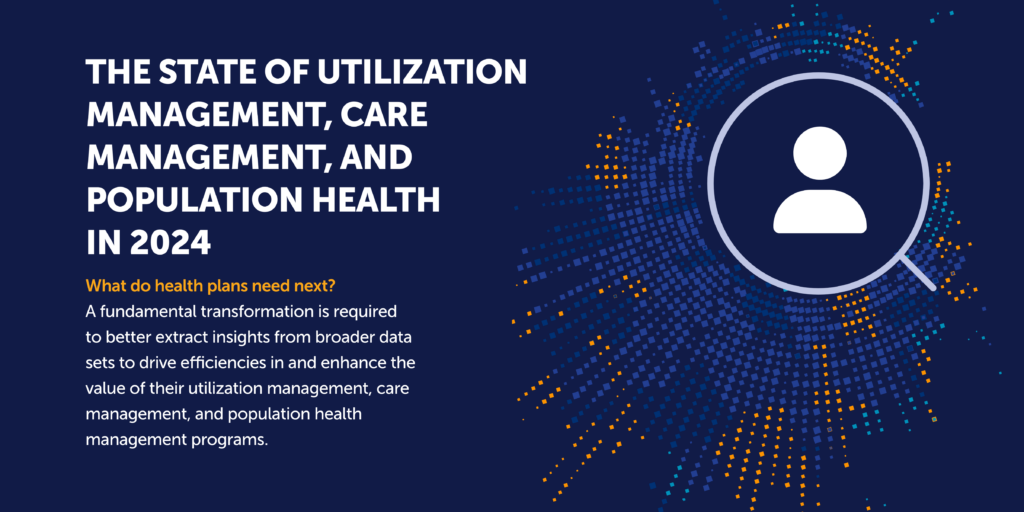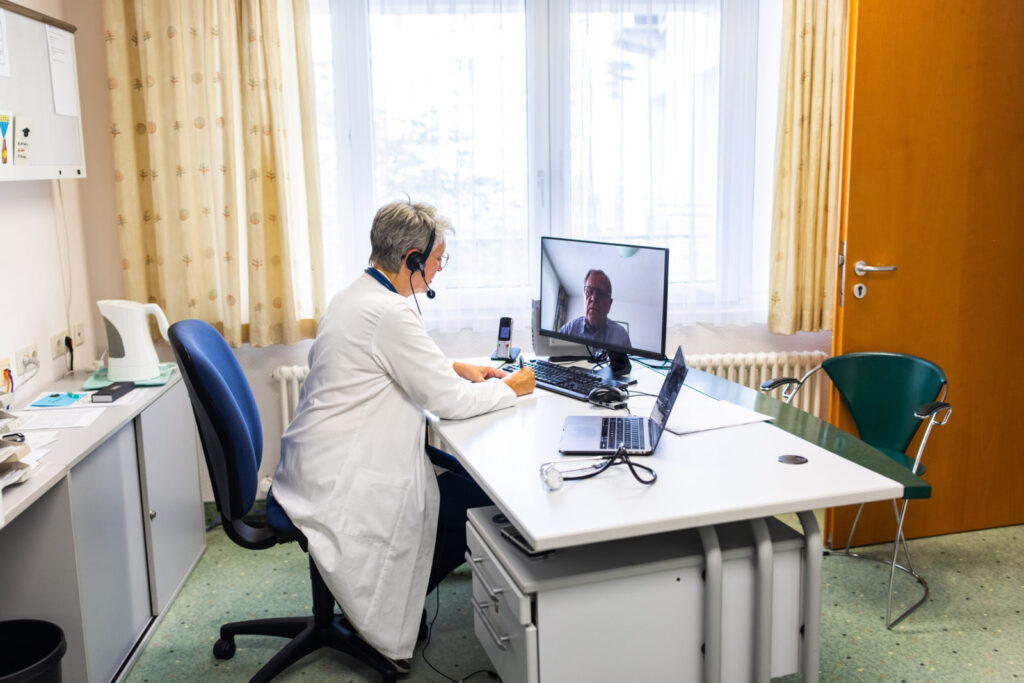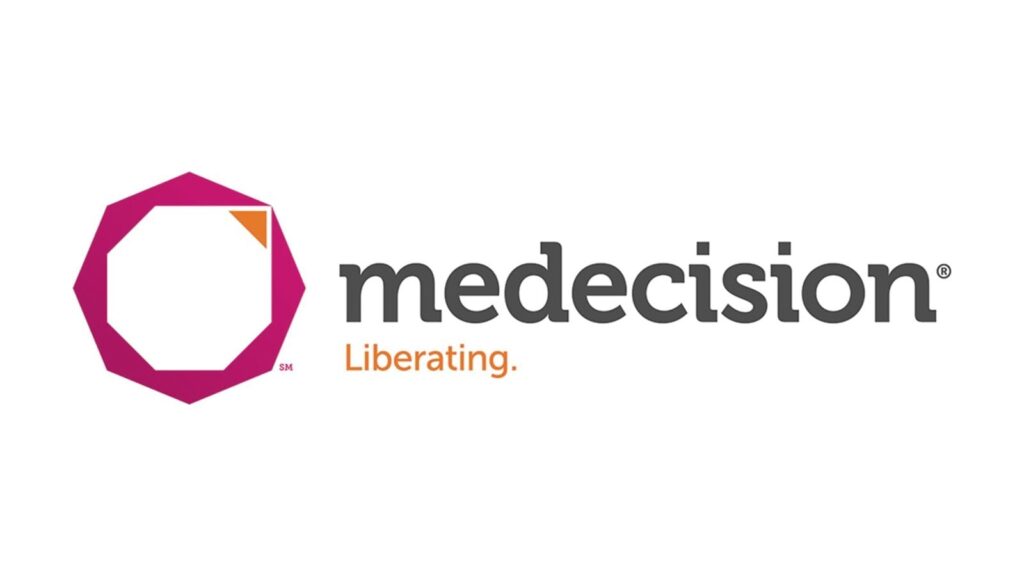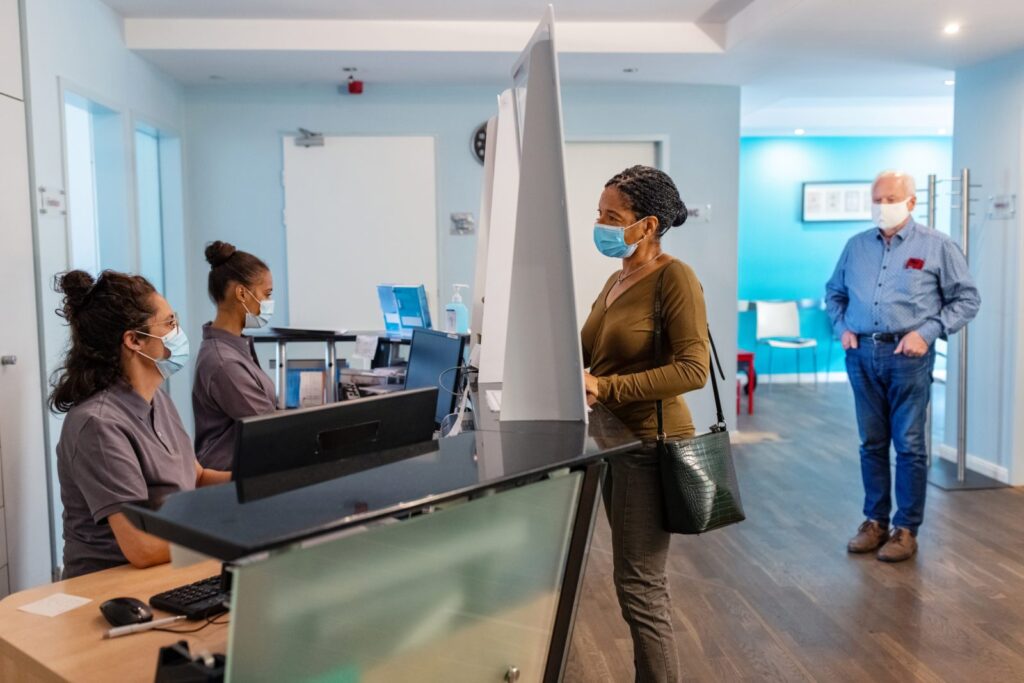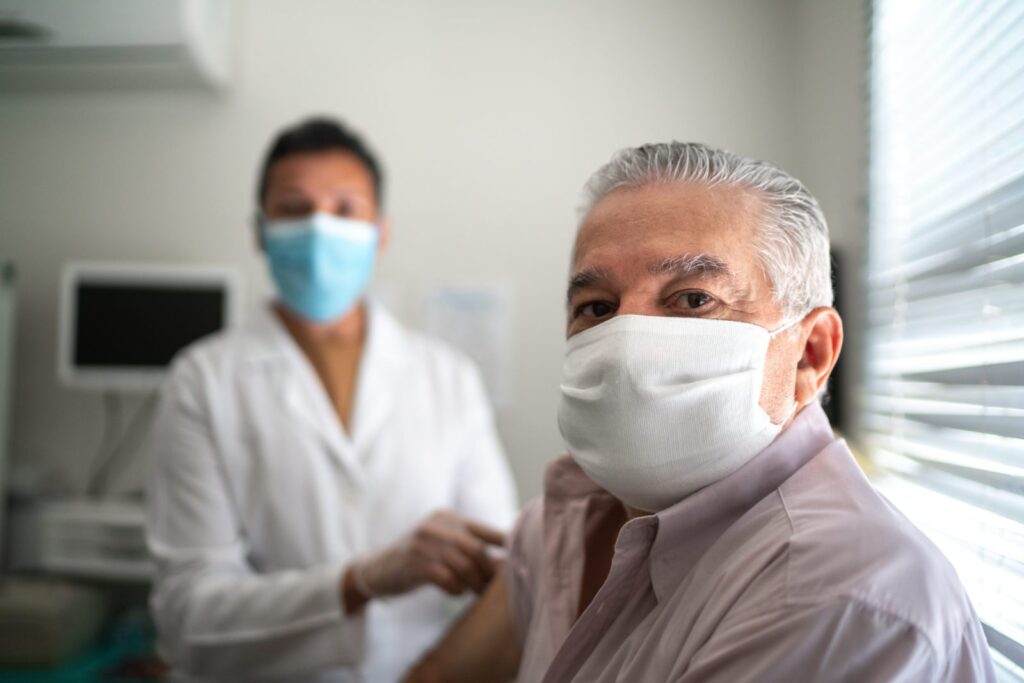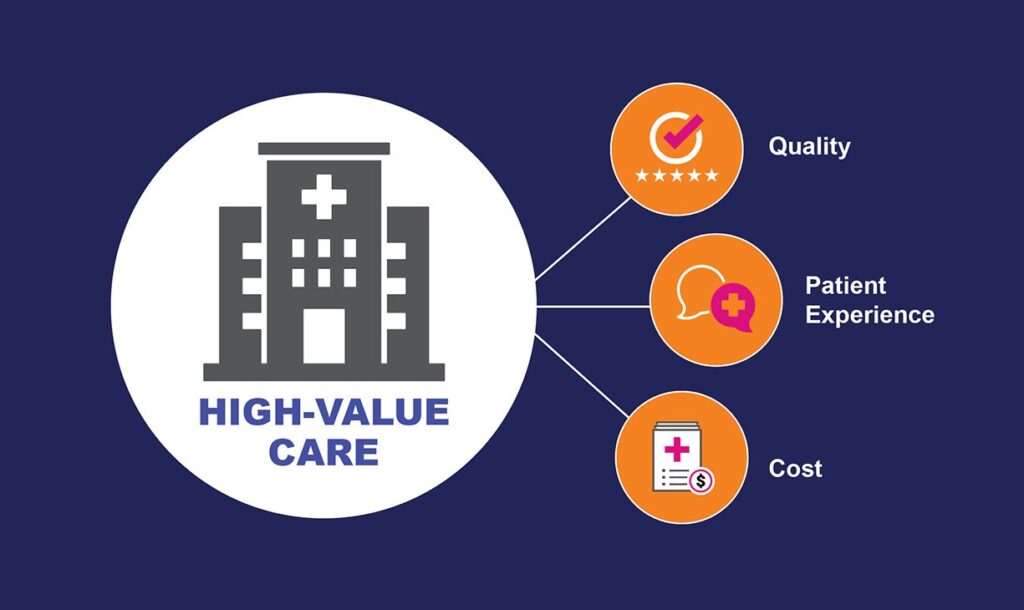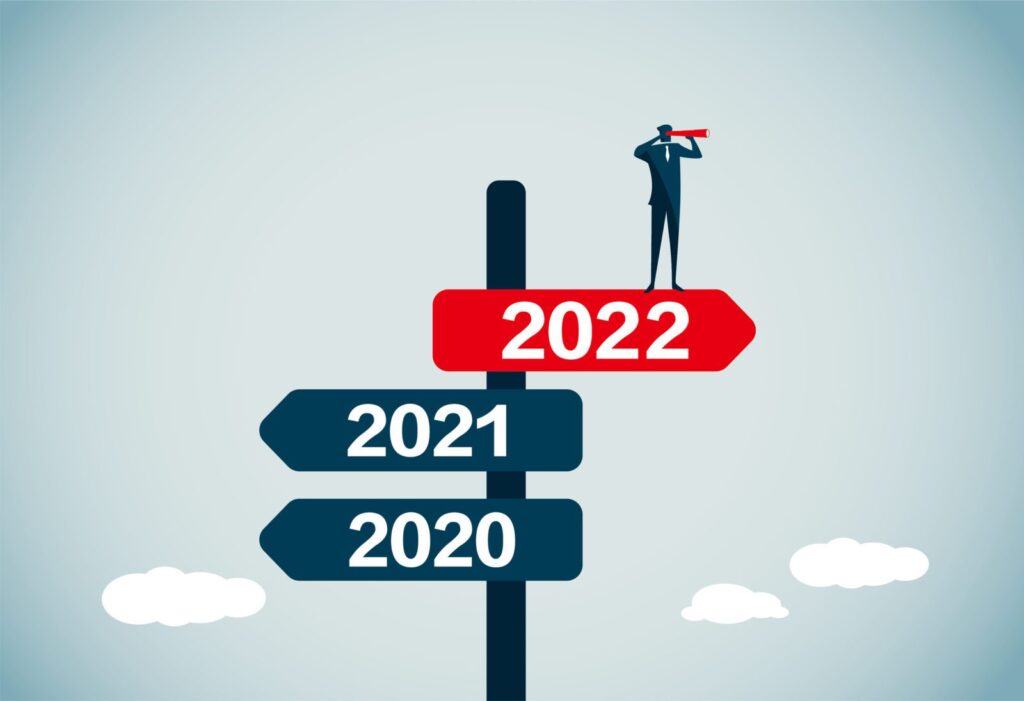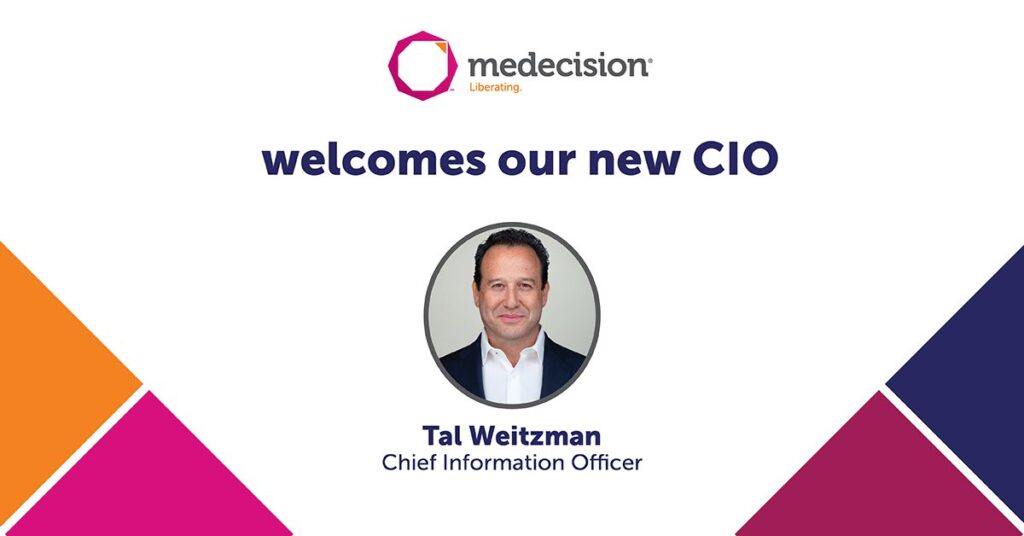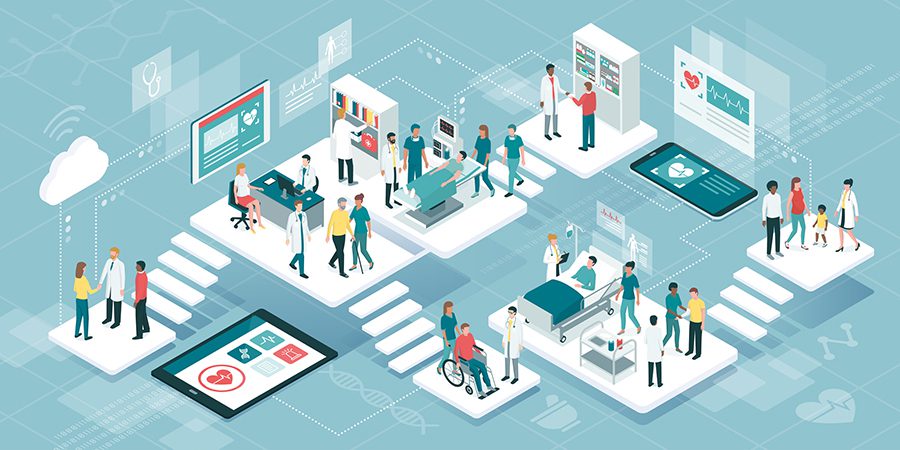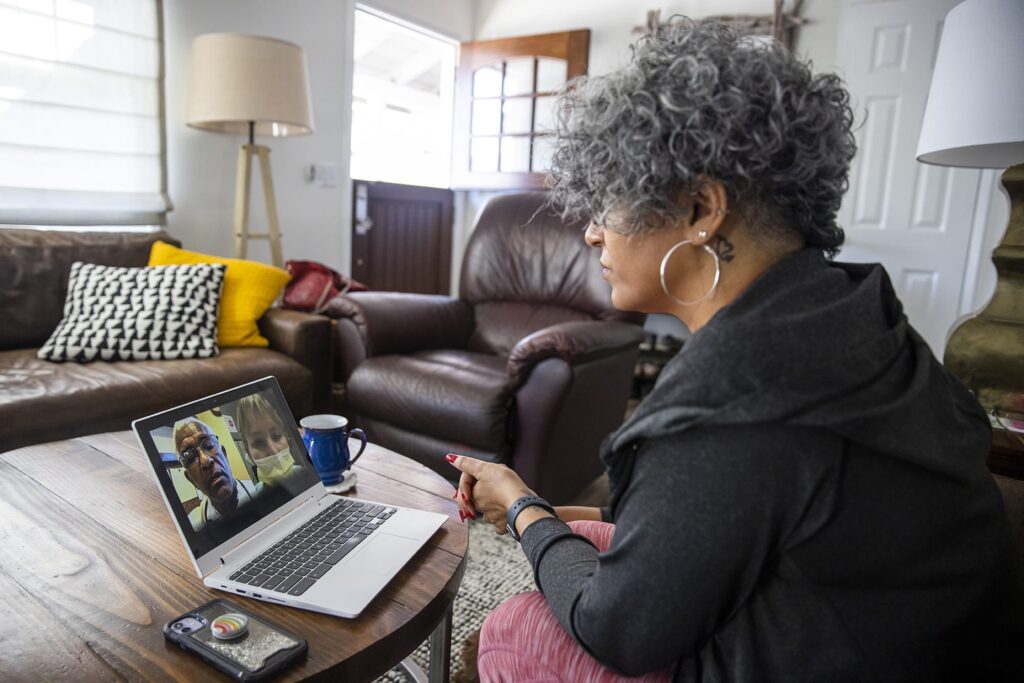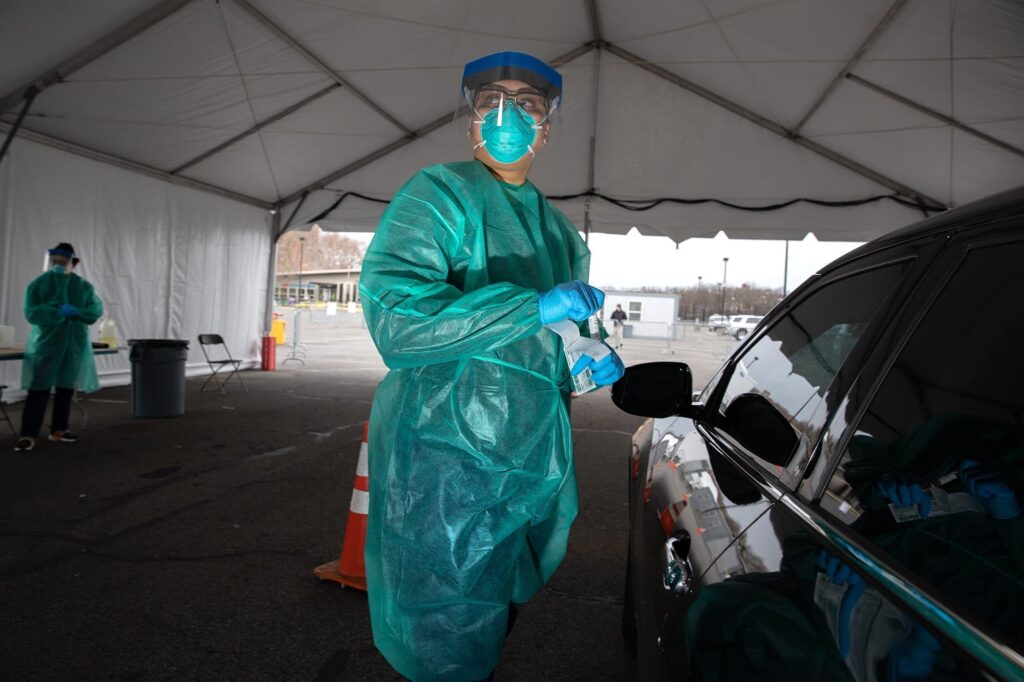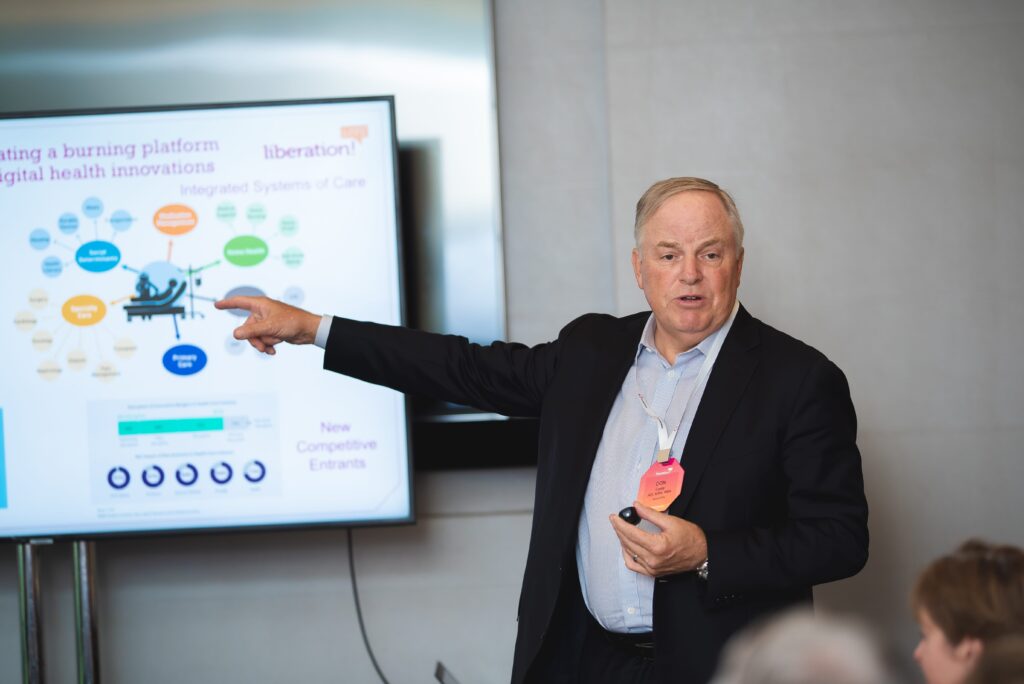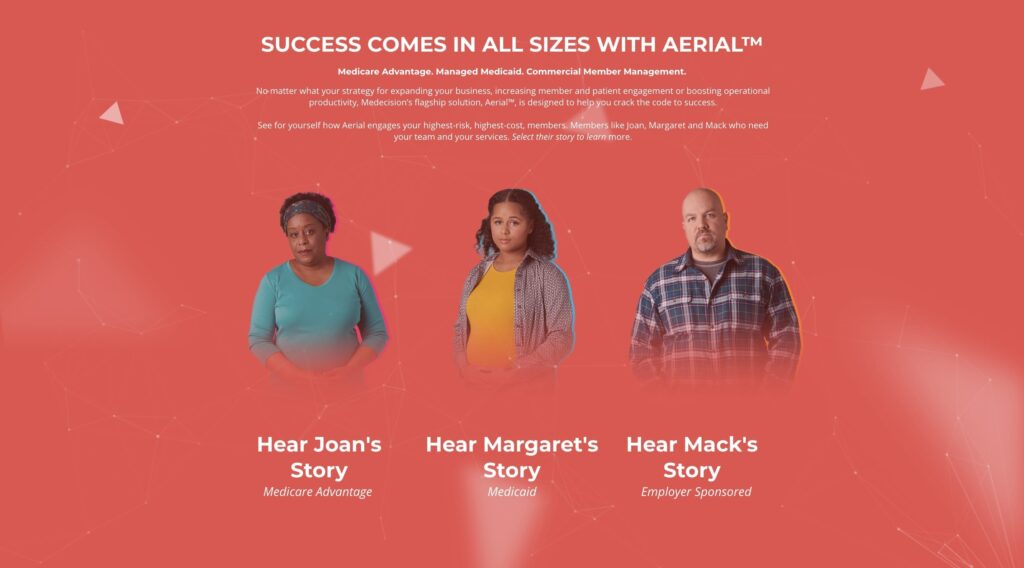For many seniors, Medicare Advantage (MA) plans appear to offer great advantages: they offer access to a wide range of non-traditional services,…
Legacy care management (CM) technologies and workflows are creating challenges for healthcare organizations looking to expand their programs—which negatively impacts clinical outcomes,…
You may have heard that it’s important to receive admission, discharge, and transfer (ADT) transactions for patients and members. The question is,…
You’ve heard the stories about the “hallucinations” produced by Generative AI engines. Often they are responses to a prompt that are presented…
2024 Elections & Health Policy: What You Need to Know Thursday, May 9, 2024, Time: 12pm ET As election year…
By Terri Steinberg, Chief Medical Officer and Chief Strategy Officer, Medecision In this final post in my series on modern data platforms…
Demonstrating the Highest Level of Information Protection Assurance Dallas, TX, and King of Prussia, PA, April 1, 2024 – Medecision, the leading…
Legacy utilization management (UM) technologies and workflows create a number of challenges. Even though health plans have enormous amounts of information, UM…
Medecision was featured in a recent article from HealthLeaders. You can find the full article here. An excerpt from the article by…
Dallas, TX, and King of Prussia, PA, February 13, 2024 – Medecision, the leading clinical data and analytics platform company, has announced…
Market report shows that health plan executives are at a critical turning point, and optimistic about AI – but are they ready…
To manage costs and advance value-based care models, health plans and health systems that take on risk need effective care management and…
By Pamela Nigro, Vice President, Security, Medecision An executive order from President Biden in 2021 focused on enhancing software supply chain security. This…
By Terri Steinberg, Chief Medical Officer and Chief Strategy Officer, Medecision In my last post, we looked at the characteristics of and…
New market research reveals a deep divide between health plan executives recognizing the need to have full contextual awareness of a member’s…
What’s holding health plans’ Utilization Management (UM) programs back from improving efficiencies, reducing costs, and driving better outcomes? Legacy tools. Fewer than…
By Terri Steinberg, Chief Medical Officer and Chief Strategy Officer, Medecision Every IT vendor supporting the health care industry claims to offer…
Did you know that, despite 95% of health plan executives stressing the importance of personalization, only a third consider their operations highly…
Workflows lie at the heart of efficient operations and user satisfaction. Whether it’s an admission, a transition of care…
5 Takeaways from the HLTH-Medecision Webinar on Transforming Data into a Strategic Asset for Person-Centric Care As healthcare witnesses unprecedented advancements in…
This piece was originally featured in Becker’s Payer Issues. It’s conference season in the health IT sector and the topic resonating most…
While the picturesque image of California is a dream for some, there’s an unsettling reality that not all residents have equal access…
A recent Yale study shed light on a profoundly concerning trend: Despite escalating investments in health care over the past two decades,…
There is a lot of talk lately about how to use artificial intelligence (AI) in healthcare. Right now, AI is most often…
Kenneth Young is an accomplished executive with a time-tested record of successful business performance. As the President and Chief Executive Officer of Medecision,…
Health plans have historically struggled to deliver personalization that increases member engagement, improves care coordination, drives better outcomes and reduces costs. That’s…
Investing in primary care can save significant costs for the U.S. health care system, and yet it has been historically underfunded. A…
Addressing Social Determinants of Health: The Key to Patient-Centered Care For far too long, the American health care system lacked economic support…
This article was featured in Physician’s Practice As physicians, we are trained to diagnose and treat illness. But all too often we…
Value-based care models, performance metrics and rising consumer expectations have ramped up providers’ care management efforts. Today’s most successful providers and provider…
Reprinted with permission from McKnight’s Home Care It’s become increasingly understood that social determinants of health, or SDOHs, play a big role…
Author: Terri Steinberg, MD, MBA, FACP, FAMIA, Chief Medical Officer and Chief Strategy Officer, Medecision Plans and providers know that attention to…
The new integration will help the digital care management solution provider address transportation-related social determinants of health for health plans and providers…
Technology helps power whole-person healthcare through earlier interventions Dallas, TX, April 17, 2023 — Medecision®, a leading provider of digital care management…
By Becker’s Healthcare in collaboration with Medecision From both a payer and provider perspective, addressing patients’ social determinants of health (SDOH) plays…
Access to healthcare does not guarantee a person’s overall well-being. Factors such as where and how individuals live can impact their health…
The healthcare payer landscape is changing fast—and payers must change with it in order to stay relevant. Today’s consumers have higher expectations,…
The changes taking place in today’s healthcare ecosystem do not allow providers the luxury of continuing business as usual. The scope and…
The sharpening focus of the healthcare industry and the federal government on prior authorization and interoperability is amping up the pressure on…
When the National Committee for Quality Assurance (NCQA) launched HEDIS measures in 1991, the project was titled the “HMO Employer Data and…
In a recent article titled “What to expect in US healthcare in 2023 and beyond,” McKinsey & Company discussed providers’ ongoing pursuit…
In healthcare payers’ never-ending quest to reduce costs while ensuring that members receive the care they need, the importance of effective utilization…
We frequently talk about care management, which, as defined by the Agency for Healthcare Research and Quality (AHRQ), is based on “appropriate…
The year kicked off with a bang at the J.P. Morgan Healthcare Conference, which its sponsor touts as “the largest and most…
In the healthcare industry, the new year begins with two meetings that together convene inventors and investors, marketers and buyers of technology:…
Medicine and technology have come a long way. In the last 20 years, new treatments, medications and technology have paved the way…
Hospitals in the U.S. continue to face thinning financial margins, higher labor expenses and clinician burnout at the end of 2022, still…
The end of the holiday season and the calendar year is an appropriate time to take stock of the gifts we’ve been…
“Sitting on a gold mine.” That expression may hit home for healthcare organizations that have yet to begin extracting full value from…
By Becker’s Healthcare in collaboration with Medecision During the Becker’s Payer Issue Roundtable conference, November 7–8, 2022, Medecision CEO Ken Young and…
A report published in August 2022 suggested that 46% of all U.S. consumers had used a mix of digital and in-person healthcare…
Thank you in advance for choosing to read this blog post. We are grateful for people like you. During this festive season,…
Where an individual lives, what they eat and the resources at their disposal have a greater influence on their health than one…
As the quest for health equity gains momentum, the nation’s oldest and largest healthcare evaluation and accreditation body has announced new standards…
What do comorbidities and social determinants of health have in common? Both can have an outsized impact on a person’s health. Both…
Does “no place like home” still apply when thinking about moving acute-care patients out of hospitals and back to their home spaces?…
If you were to ask your employees if they felt burned out, unhappy, unsupported, overworked or underpaid, what would they say? In…
Healthcare coordination can overwhelm even the most knowledgeable patients, especially if they have a complex condition or treatment plan, as seen with…
How can you increase the ROI of every care management activity to get more value from your care management program? The strategies…
We talk a lot about the price of prescription drugs in the U.S. There is bipartisan support among Americans for Medicare’s ability…
We offer five tips for health plans seeking to improve member education campaigns. Subscribe to our blog Don’t forget to share this…
New technologies and increased accessibility are expanding the range of solutions, innovations and analytics capabilities that lead to consumer insights and opportunities…
By viewing their industry and its challenges through their patients’ eyes, organizations can put themselves on track to provide the right solutions….
Will over-the-counter hearing aids usher in a new era of OTC healthcare products and services? Health economist Jane Sarasohn-Kahn explores the possibilities…
At this point in the pandemic, healthcare workers are experiencing burnout and need mental and emotional support more than ever. Subscribe to…
As the healthcare industry shifts toward value-based care, integrated care delivery models will become even more important. Subscribe to our blog Don’t…
Until you understand the reasons why patients aren’t taking their medications, you can’t implement strategies to improve adherence. Subscribe to our blog…
We offer strategies to better engage with members and encourage them to become active participants in their health. Subscribe to our blog…
Health economist Jane Sarasohn-Kahn breaks down the recent report from Bertelsmann Stiftung and explores the implications of digital tech on health equity…
How can health plans help providers cross prior authorization hurdles? We give four strategies. Subscribe to our blog Don’t forget to share…
How can healthcare organizations help address social determinants of health? Subscribe to our blog Don’t forget to share this post!
We share four benefits of introducing technology and automation to your care management program. Subscribe to our blog Don’t forget to share…
Health inequities have long been a dreadful, distinctive facet of the U.S. healthcare industry. Health economist Jane Sarasohn-Kahn discusses financial implications. Subscribe…
We explore how health plans and health systems can help members and patients overcome health equity barriers and bridge the language gap….
Dallas, TX, June 14, 2022 —Medecision, a leading provider of digital care management solutions and services, today announced it has received a…
Population health considers the health status and outcomes of an entire group of people, rather than focusing just on specific individuals. Is…
Value-based care is the future of healthcare in the U.S. These four core competencies can help guide your organization toward a model…
Older adults in America face a slew of health disparities. Health economist Jane Sarasohn-Kahn dives deeper into recent research about older Americans’…
Building a care management program—and leading it—can be made easier with these three steps. Subscribe to our blog Don’t forget to share…
Meaningful Measures 2.0 goals are designed to facilitate the ongoing move toward value-based care, which targets issues including person-centered care, safety, chronic…
An abundance of actionable data exists, making it possible for care managers to be as specific as they need to be, whether…
Recently the Centers for Medicare & Medicaid Services (CMS) outlined an action plan for addressing health disparities; ensuring high-quality, affordable healthcare for…
These four states are taking a boots-on-the-ground approach to addressing social determinants of health. Subscribe to our blog Don’t forget to share…
When you can align activities such as prior authorizations, utilization management and operational workflows with regulatory mandates for quality, timeliness, interoperability and…
Jane Sarasohn-Kahn explores the importance of embracing an ESG policy in healthcare. Subscribe to our blog Don’t forget to share this post!
DALLAS, TX – April 21, 2022 – Medecision, a leading provider of digital care management solutions and services, announces it has joined the…
Artificial intelligence, including machine learning, can help you analyze and turn mountains of data into actionable insights. This can lead to positive…
How can predictive modeling help support patients through transitions and ensure they continue to receive the care they need, adhere to medication…
April 1, 2022 – Dallas, Tex. and Chicago, Ill. – Medecision, a leading provider of digital care management solutions and services, and…
When a patient goes outside the network for care, it can have negative consequences for both cost and care. Reducing network leakage…
As trust increases, so does the engagement of healthcare citizens with healthcare professionals and services. Subscribe to our blog Don’t forget to…
Oscar Health chooses Medecision solution to provide leading digital care management for its members. Subscribe to our blog Don’t forget to share…
When care management teams become more proactive, they can help keep members on the right track and prevent setbacks rather than react…
Digital care management company adds Jacob Jesson as EVP and chief revenue and experience officer. Subscribe to our blog Don’t forget to…
Better care coordination? Check. Better outcomes? Check. Better reports and data analysis? Check. Medecision’s HITRUST CSFⓇ-certified software-as-a-solution, AerialTM, gives care managers a…
Social distancing is great. Medical distancing? Not so much. Doctor visits are still necessary for ensuring good health. Subscribe to our blog…
How can care managers improve performance metrics in addition to member outcomes? Subscribe to our blog Don’t forget to share this post!
Everyone knows that diet, lifestyle choices like alcohol consumption and smoking, exercise, and genetics play a role in your overall health. But…
What if there was a next-generation care management solution that helped health plans manage risk and empowered care managers to provide the…
Inflated prices for household products, food and utilities can stretch already thin budgets, leaving many Americans wondering how to pay bills and…
By focusing care management activities on areas with the potential for the greatest impact and making high-value decisions, care managers can optimize…
Are care managers unsung heroes by helping control healthcare costs? Subscribe to our blog Don’t forget to share this post!
Healthcare consumers feel more empowered to weigh their options, share their opinions and expect more out of their healthcare experience—which is why…
The key determinants of healthcare for 2022 are rooted in our experiences from 2021. Subscribe to our blog Don’t forget to share…
Digital care management company adds Tal Weitzman as chief information officer to help deliver dynamic digital capabilities to customers. Subscribe to our…
Clinical informatics is leading the way in the much-needed transformation of healthcare. Subscribe to our blog Don’t forget to share this post!
Today’s consumers increasingly expect healthcare to meet them where they live, work and play, and that means big changes for care management….
Amid healthcare payers’ heightened financial pressures and members’ increased needs, it might be time to change the definition of care management. Subscribe…
Optimizing healthcare workflows has both obvious and not-so-obvious benefits. Subscribe to our blog Don’t forget to share this post!
Medecision was recently honored by Modern Healthcare for its virtual health marketing campaign. Subscribe to our blog Don’t forget to share this…
Appropriate care and better outcomes are the goals of utilization management, including prior authorization. But the processes to achieving these goals need…
Health economist Jane Sarasohn-Kahn shares what the healthcare industry can learn about improving the consumer experience from three other organizations. Subscribe to…
Meet Maria Colaberdino. She’s a member of our Portfolio Management team where she works as the Senior Director of Clinical Principal. Maria…
Clinician burnout isn’t a new trend, but the COVID-19 pandemic has exacerbated the issue, with many healthcare workers reporting that they are…
Entertainment, hospitality, financial planning and aviation have important ideas for improving the member and patient experience. Subscribe to our blog Don’t forget…
Meet Tamara Cull. She’s a member of our Revenue & Experience team where she works as the SVP of Customer Success. When…
The latest episode of Liberation Lab focuses on CMS changes to Star Ratings and what the shift in weights of different measures…
At Medecision, we understand the importance of healthcare partnerships and collaboration. When we work together, we can improve healthcare for everyone. Subscribe…
Meet Anna McDonald. She’s a member of our Customer Experience team where she works as a Technical Writer. When Anna isn’t focusing…
As we return to normal life, we must not forget the lessons learned during the pandemic. Subscribe to our blog Don’t forget…
Nancy Green, senior vice president at Aveus, sat down with Julie Barnes, founder of Maverick Health Policy, and Debbie Hill, vice president…
Integrated health analytics and software company adds Quyen Nguyen-Haelle, CPA as chief financial officer and Pavel Grebenshikov as chief technology officer to…
Health equity has become something of a catchphrase, but it’s an important one to know. At Medecision, we’re deeply committed to working…
Meet Versha Shah. She’s a member of our Engineering team where she works as a Senior Application Developer, but her job at…
Many health systems are investing in population health management strategies, which help them understand target populations while identifying risks and unmet needs….
At Medecision, we are committed to staying at the forefront of discussions about industry-wide issues—such as pharmaceutical drug pricing. Health economist Jane…
America is in the midst of a mental health crisis—but hospitals and community-based organizations can partner together to identify and diagnose mental…
At Medecision, we are committed to improving healthcare and health equity for all and feel it’s important to highlight the voices championing…
The COVID-19 pandemic put consumer trust to the test in 2020 and early 2021. Health economist Jane Sarasohn-Kahn shares how the healthcare…
A game-changing revision to CMS rules for Star ratings puts Medicare Advantage plans under extra pressure to deliver an excellent customer experience….
At Medecision, we understand the value of virtual care. But until we make the processes easy and accessible, we’re not going to…
Guest blogger Jane Sarasohn-Kahn shares how recent acquisitions of telehealth companies means telehealth and virtual care is now a regular form of…
Medecision is committed to helping the healthcare system achieve the Quadruple Aim, and a key component of that is improving the patient…
Terry McInnis, MD, MPH, CPE, president of Blue Thorn Inc. and member of the Medecision Advisory Board; and Terri Steinberg, MD, MBA,…
DALLAS, TX – April 14, 2021 – Medecision, an integrated health management company supporting virtual care and digital health, announced Ken Young will…
Vaccine hesitancy is not uncommon in rural America. But the healthcare industry can’t forget about rural communities. Subscribe to our blog Don’t…
We saw a housing crisis in America this past year—and we quickly learned how important safe housing is to healthcare. Subscribe to…
The latest episode of Liberation Lab focuses on the prior authorization rule affecting utilization management. Julie Barnes, JD, Founder and Principal of…
What does the new interoperability and prior authorization rule mean for the patient experience? Julie Barnes, founder and principal of Maverick Health…
In this episode of the Liberation Lab podcast, we bring together healthcare leaders with vast experience in caring for and engaging underserved…
The COVID-19 pandemic has resulted in more people on Medicaid. It’s more important than ever before for the healthcare industry to do…
Although many Americans are lining up for their COVID-19 vaccine, we’re still far from herd immunity. But experts are hopeful that more…
What are the top priorities for the Biden administration? Combating the COVID-19 crisis, improving livelihoods and setting the American ship on the…
The COVID-19 pandemic has forced healthcare organizations to adapt—and adopt alternative ways of delivering care to patients. Artificial intelligence and the Internet…
New rules will ease administrative burden, speed up reimbursement and remove fears of accidental violations. Subscribe to our blog Don’t forget to…
It has been a long year, full of challenges and obstacles. But there are five gifts from the pandemic that we should…
Increased attention is being paid to treating the whole person, addressing social determinants of health and recognizing the value of virtual care….
In this episode of the Liberation Lab podcast, we speak with health economist, advisor, trend weaver, and author, Jane Sarasohn-Kahn. Jane shares…
What changes can we expect to see to healthcare policies during the Biden administration? Subscribe to our blog Don’t forget to share…
Liberation Lab turns its sights to the potential implications of the November 2020 election on US healthcare policy. Our expert guests include…
The future is virtual, especially for older people. Health economist Jane Sarasohn-Kahn explores how the industry is seeking out ways to serve…
In this episode of the Liberation Lab podcast, we spoke with Lynne Dunbrack, Group Vice President at IDC Health Insights, and ChristianaCare…
Dr. Terri Steinberg will join the company as Group Senior Vice President of Analytics and Population Health and Chief Medical Officer, effective…
Tommy Duncan adds perspectives from Medicaid care management and virtual health innovation to the group. Subscribe to our blog Don’t forget to…
In this episode of the Liberation Lab podcast, healthcare leaders Dr. Janice E. Nevin, President and CEO of ChristianaCare, and Karen L….
Medecision’s Aerial platform makes virtual care a greater possibility. Subscribe to our blog Don’t forget to share this post!
Not only have grocery stores remained open during the COVID-19 pandemic, but many have emerged as innovative leaders in addressing food insecurity….
Jesse Thomas brings valuable Medicaid managed care expertise to the Advisory Board just as Medicaid enrollment increases and virtual health modalities improve access…
Disparities clearly exist, and it is our responsibility to figure out why and how to address them, for the good of everyone….
As Americans, we must claim our collective health citizenship, and act on it together. Subscribe to our blog Don’t forget to share…
The Liberation Lab podcast welcomes Medecision leader Rick Koloski, along with Dr. Terri Steinberg in her role as Chief Health Information Officer…
How can the healthcare industry acknowledge racial disparities and strategically work to reduce them? Subscribe to our blog Don’t forget to share…
‘Unplugging,’ staying connected remotely, helping with child care and being vulnerable are among the ways to fight worry, stress and burnout. Subscribe…
Even before COVID-19, working-age Americans struggled to afford healthcare coverage. Now, in the event of an economic downturn, the situation could worsen….
In April, Dr. Terry McInnis explained what researchers were learning and studying about the coronavirus. Now, five months later, Dr. McInnis shares…
The Liberation Lab podcast brings back Dr. Terry McInnis to talk about what we’ve learned about the coronavirus since she spoke with us back in…
Shoshana Ungerleider, M.D., founder of the End Well Project, discusses the importance of communications skills and palliative care when discussing end-of-life issues…
Dr. Jan Berger, author and analytics, clinical and population health expert will help guide Medecision’s leadership team to a broad market position…
The hospital-at-home concept isn’t new, but the COVID-19 pandemic has accelerated its usage. Subscribe to our blog Don’t forget to share this…
In this episode of the Liberation Lab podcast, our team sits down with Shoshana Ungerleider, MD to explore how the COVID-19 pandemic…
What do today’s consumers want in a healthcare experience? Personal involvement is at the center of it all. That points to an…
Moving forward, Fast Healthcare Interoperability Resources (FHIR) will be used for the digitalization of HEDIS quality measures. Subscribe to our blog Don’t…
Rick Koloski, group senior vice president of engineering and architecture at the healthcare firm Medecision, discusses how enterprise agility has helped the…
The healthcare industry is typically immune to recessions and nationwide economic struggles—but not this time. How will the pandemic impact the healthcare…
Why is it important for the healthcare industry to address social determinants of health? Subscribe to our blog Don’t forget to share…
In this episode of the Liberation Lab podcast, we invited Babette Apland, Managing Director of Call to Mind, to share her thoughts…
Learning and development professionals have long recognized the stubborn gap that exists between corporate learning efforts and expected outcomes, particularly when it…
We’re living in a time of uncertainty, and many people are feeling stressed, anxious and panicked. Babette Apland, managing director of Call…
The COVID-19 outbreak has motivated hospitals, manufacturers and even the government to come up with alternative solutions to the challenges we face….
How does virtual health help us take a step forward in humanizing healthcare? It works within and around a person’s life, as…
Telehealth usage skyrocketed during COVID-19. But it also revealed inequities in the healthcare system. Subscribe to our blog Don’t forget to share…
In January 2019, Medecision launched a yearlong process to achieve MARS-E compliance. Here’s how we did it. Subscribe to our blog Don’t…
Liberation Lab spoke with Julie Barnes, Founder and Principal of Maverick Health Policy, and a health care policy expert with years of…
Medecision appears in the Healthcare IT News Guide to Population Health IT Vendors and SDOH Tools. Visit their report for information on Medecision’s solutions…
Virtual health is having a heyday right now—and many experts suggest that it is here to stay long term. Subscribe to our…
COVID-19 has turned our world upside down. It’s changed so many aspects of our lives – how and where we work, how…
Dr. Jan Berger is a tri-sector healthcare executive with a background in public, private and government sectors. In 2009, she helped found…
How has caregiving in America changed? For starters, more caregivers are adopting technology to help them address the complex and challenging workflow….
CMS and ONC delays to enforcement give the industry a few additional months to prepare for major overhauls to ensure the appropriate…
Chris LaVictoire Mahai, president of Aveus, a division of Medecision, shares six essential practices for improving the patient experience emerging from our…
People are craving a return to “normal,” but no one quite knows what “normal” is anymore. Dr. Richard Popiel, Medecision Advisory Board…
To lead this episode of Liberation Lab, we invited Dr. Carolyn Smith, a retired rheumatologist and healthcare leader, to discuss the principles…
This episode of Liberation Lab features Dr. Richard Popiel, Medecision Advisory Board member and a distinguished healthcare executive, sharing perspectives on some…
How will the COVID-19 pandemic affect healthcare’s shift to value-based care payment models? Tamara Cull, DHA, Senior Vice President of Portfolio Management,…
Healthcare heroes across the country are teaming up and going beyond the call of duty to provide empathetic, high-quality care during a…
AerialTM quickly supports the new realities of caring for vulnerable individuals in the face of COVID-19. Subscribe to our blog Don’t forget to…
The Aerial team may be working remotely, but we’re still #Here4You. Hear first hand from our Liberators about how we’re supporting our…
Dr. Terry McInnis, a board-certified physician in preventive medicine and president of Blue Thorn Inc., shares what the healthcare industry knows and…
The coronavirus has affected more than just our physical well-being—it’s also affecting mental health, as many people grapple with the unknowns surrounding…
Gyms and community rec centers are closed, but that doesn’t mean you have to let exercise and physical activity fall by the…
How can leaders show up BOLD-ly during a pandemic? Our colleagues with Aveus explore how leaders can navigate effectively during these uncertain…
Long after we flatten the curve, Americans will still be dealing with lingering mental health issues. Subscribe to our blog Don’t forget…
Terri Kline, MPH, former president and chief executive officer of Health Alliance Plan, former executive vice president of Henry Ford Health System…
In this episode of the Liberation Lab podcast, Medecision Advisory Board member, Dr. Terry McInnis, shares information about the novel coronavirus during…
For many employed Americans, the coronavirus pandemic has brought about a new reality. Here’s some advice for doing your job without driving…
In this episode, Medecision Advisory Board Chair Dr. Jan Berger gives some thought-provoking perspectives around what population health looks like during, as…
As the world struggles with the coronavirus, our healthcare heroes are going above and beyond, working selflessly for the greater good. Subscribe…
For our inaugural episode of Liberation Lab, we’ve invited Terri Kline, an epidemiologist, Medecision Advisory Board member, and long-time partner to give…
A reflection on the Coronavirus Disease 2019 (COVID-19) pandemic from our partners at the American College of Medical Quality. Subscribe to our…
During this challenging and evolving time, we are providing the following update for our clients on our business operations and how we…
As the Coronavirus Disease 2019 (COVID-19) situation continues to evolve, we are sharing information about the steps we’ve taken in response to…
Medical loss ratio (MLR) rebates hit a record $1.3 billion in 2019 because health plans spent too little on medical claims and…
Health economist and trend weaver Jane Sarasohn-Kahn shares insights on how COVID-19 (coronavirus) is impacting Americans’ behavior and spending – and the…
What does Liberation mean to you? Maybe it means thinking outside the box, enhancing the healthcare experience or lowering healthcare costs. Subscribe…
Dr. Donald Casey, president, American College of Medical Quality, highlights the most thought-provoking insights from the Clinical Executive Summit at Liberation 2019….
High-risk populations often have complicated chronic diseases and behavioral health conditions, and social issues such as employment, food insecurity, lack of transportation…
In October 2019, Medecision acquired health delivery system transformation pioneer GSI Health. GSI Health has been an innovator in driving change in…
As healthcare moves toward the full embrace of value-based care models, utilization management is increasingly leveraged as a means to not only…
Shenée Rayford oversees all aspects of Human Resources for the integrated health management provider, which promotes a unique culture devoted to “liberating”…
Some of the most enthusiastic feedback from this year’s Liberation event came in response to our world-renowned keynote speaker, Eric Topol, MD….
Medecision’s acquisition of health delivery system transformation pioneer GSI Health expands the company’s expertise and solutions for Medicaid beneficiary management and member…
Medecision has integrated the Change Healthcare InterQual Connect medical review service into the iExchange provider data-entry solution. This press release was originally…
The following blog post is courtesy of Jane Sarasohn-Kahn of healthpopuli.com, one of the featured speakers at the Liberation 2019 event. Subscribe…
Digital health technologies may one day potentially solve some of healthcare’s biggest problems. But big problems require big solutions in order to…
Medecision’s Advisory Board will provide insights and facilitate relationships for Medecision’s leadership teams in advancement of the company’s strategic goals. Subscribe to…
As technological innovations continue to flood the market, will healthcare organizations adopt them at a pace that results in big-bang disruption or…
Technology can help scale social determinants of health. But to be effective, we must first understand the people with whom we wish…
In rural areas, doctors are like a revolving door, rarely staying in one place for long. There are disparities in healthcare access…
The concierge care model looks to provide personalized service to health plan members. Subscribe to our blog Don’t forget to share this…
A combination of technological advancements and increasing clinical evidence has created a clearer understanding of how much the environment in which people…
A simulation of Aerial’s integrated health management capabilities now available via a new digital experience at aerialhealth.io. Subscribe to our blog Don’t forget…
When patients don’t follow doctors’ orders, the consequences are dire. Health plans can help by understanding the specific challenges that members are…
Population health initiatives typically assume that members can participate in their own care on a basic level, yet those assumptions may not…
The open window to apply for CMS’ Bundled Payments for Care Improvement (BPCI)-Advanced closed on June 24, 2019, but there’s still plenty of opportunity for health systems to move forward…
In this last installment of our three-part blog series on healthcare data security, we’ll describe the benefits of choosing technology vendors that…
HIT companies have to remember that at the end of a digital transaction, there’s a person. Subscribe to our blog Don’t forget…
DALLAS, TX – Oct. 16, 2018 – Medecision, the leader in population health and care management solutions, announced today its Aerial…
SaaS application connects provider contract and member enrollment details for real-time authorizations and referrals, eliminates costs and delays tied to manual utilization…
HITRUST CSF Certification validates Medecision is committed to meeting key regulations and protecting sensitive information DALLAS, TX – July 24, 2018 – Medecision, a…
Helps Medecision’s clients assess and accelerate population health strategies and outcomes DALLAS, TX and MINNEAPOLIS, MN – May 22, 2018 – Medecision, a leader…
Company recognized as one of the leading global healthcare information technology providers for payers and providers Wayne, PA – August 14, 2017 –…
Company earns highly coveted ranking year over year among top healthcare IT vendors WAYNE, PA – July 5, 2017 Medecision, the leader…
WAYNE, PA – Nov. 2, 2016 Medecision, the leader in population health management solutions for risk-bearing healthcare entities, has been named in Gartner’s 2016…
WAYNE, PA – Dec. 17, 2015, Medecision, the leader in population health management and connected care solutions for risk-bearing entities like provider-…
WAYNE, PA – Nov. 10, 2015, Medecision, the leader in population health management and connected care solutions for risk-bearing entities like provider- and…





